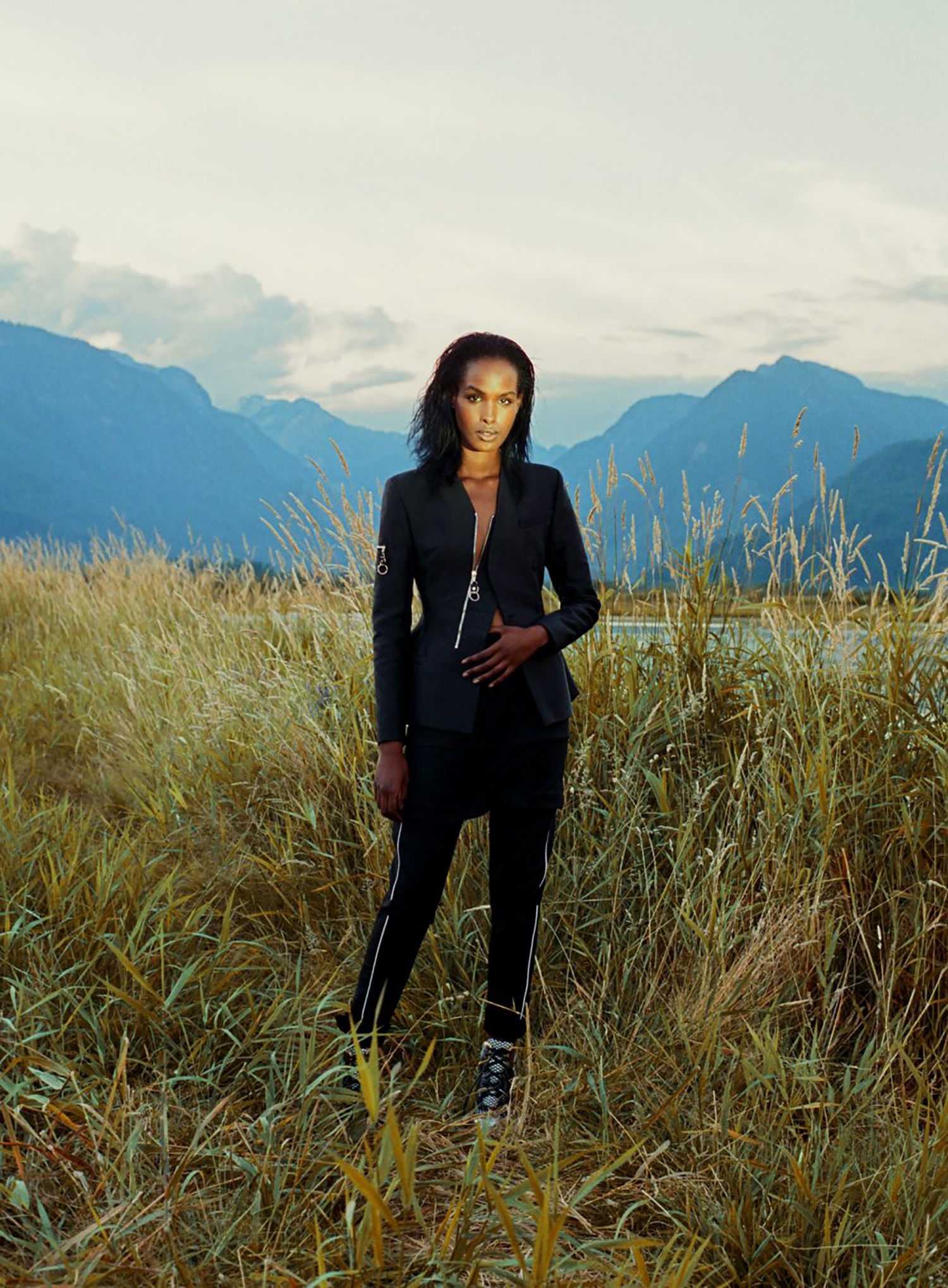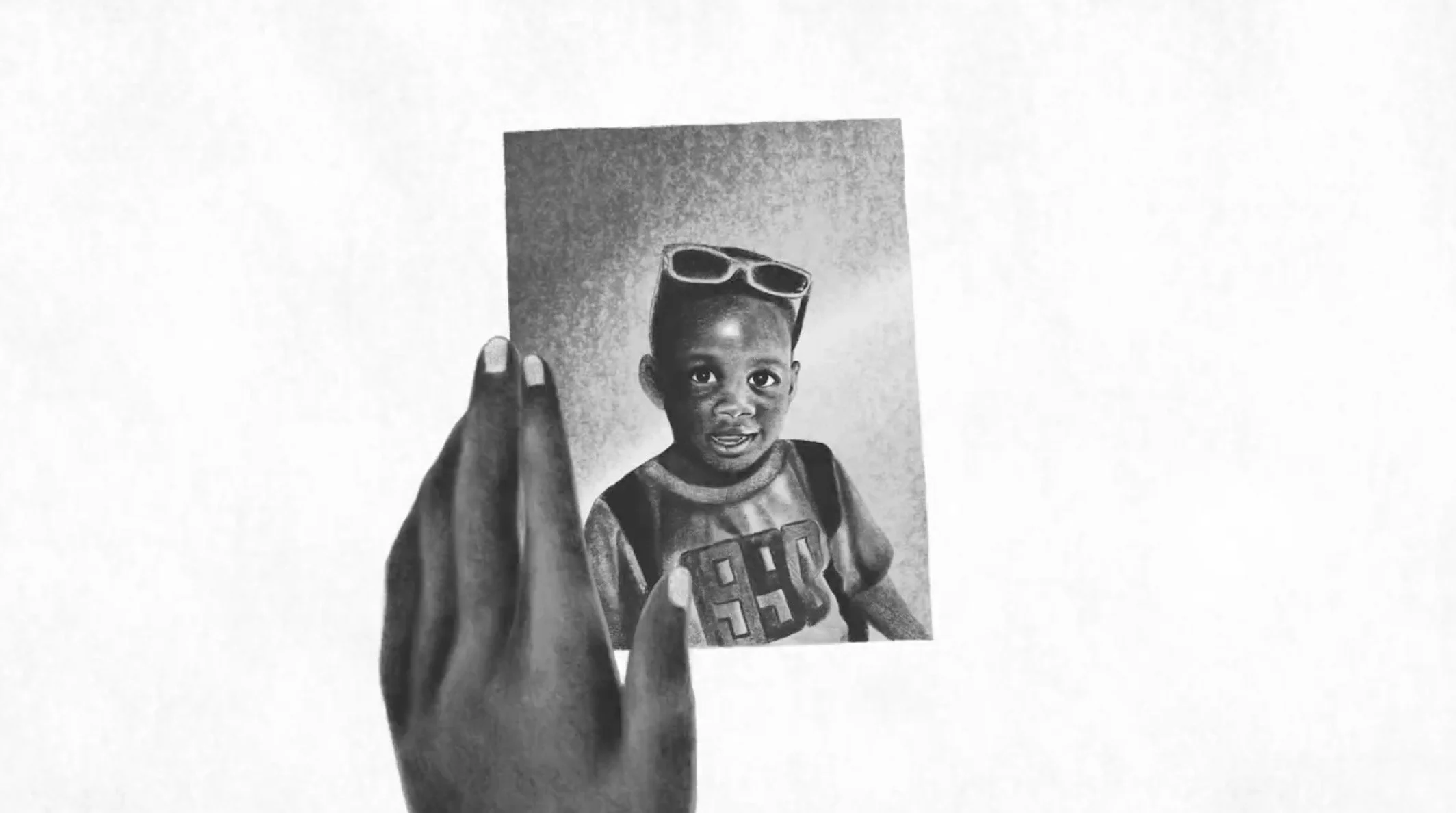Meet July's Featured Artist: Katrin Braga
/Katrin Braga is a Vancouver-based photographer, filmmaker, and streetcasting director from Iceland. Apart from her photography practice, she runs two studio spaces in Vancouver, as well as her own company, VAKA Streetcasting. Her work has appeared in several magazines, including Nylon, Dazed, and The Editorial Mag, to name a few. The litany of brands she’s worked with include Reigning Champ, Herschel, DC Shoes, and Beth Richards. The list of her accomplishments goes on, but we found that this well-grounded Virgo shoots with a focus on people, their real-life stories, and connecting with nature.
Gummi for DC Sneakers.
Elysse Cloma: How did you end up living and working in Vancouver?
Katrin Braga: It’s a complicated story. I met my partner in Iceland when he was working there. I was originally going to move to Europe. I was graduating from school and I didn’t want to be in Iceland anymore. Too cold, too dark, it’s an intense place to live. I really wanted to get away. When I met my partner, we started a long distance relationship. I came to Vancouver over Easter break 7 years ago, and I was graduating that summer. I decided to come here and to move to be with him. Doing all the immigration stuff took awhile, but now I have a permanent resident card.
EC: How long have you been taking photos?
KB: Since I was 15 or 16. I found my dad’s little film camera in a storage room. I had no idea how to work the camera. My dad taught me how to put film into the camera, and he kind of taught me how to shoot, but I had to learn myself. I bought a couple of films and started walking around the forest in Iceland and started taking photos from there, and of my friends after that.
Finn Wolfhard for Montecristo, 2017.
EC: How did this become your profession?
KB: I was fortunate. My best friend then was a model, and we started shooting together just for fun. From there I started getting little jobs; I got more jobs from there, but it wasn’t anything I could rely on financially back then. Everything clicked when I started taking photos, which I didn’t expect. People started liking my work and I started getting featured in little magazines in Iceland when I was 16, so it kind of blossomed from there.
Beppu, Japan, 2019.
EC: I noticed your work has appeared in a lot of major magazines (Dazed, Vice, etc.) How does that happen for you?
KB: When my work started appearing on websites, I started doing more fashion editorial shoots, creatives with my friends in Iceland, and Vancouver later on. Then I started submitting my work into those magazines. After I got enough work published I started getting clients here and there. The more clients you get under your belt, the more work you get organically. That’s how you start approaching brands and approaching people. Sometimes I get random emails.
Nicola for Pearle Knits, 2019.
EC: How do you approach brands you want to work with?
KB: You have to have the right connections. If you know somebody who works at a company, they can connect you. In a way it’s about who you know. You need to meet the right people to help you get your work forward, but obviously your work has to be strong.
Nicola, 2017.
EC: Sounds like a lot of things have happened organically for you, so how did you get into streetcasting? What is streetcasting?
KB: Two of my friends in town are casting directors. They saw I was shooting a lot of 70s-inspired photoshoots. They loved the models I was shooting, and they were doing a commercial for a big brand. They wanted me to cast people who looked like they could be from the 70s for the commercial, so they hired me for four days to scout people and get them into the studio and do some video work and photography. It was a good opportunity for me.
From there I realized I could do something. There’s an untapped market in Vancouver that exists in Toronto, New York and LA. I decided to start my own company where I could focus on being a casting director and focus on real people who aren’t professional actors already. It’s a trend in the commercial world to focus on real-life stories, so I wanted to tap into that market too. It took awhile to get the company running, but it’s getting bigger clients and jobs. I was just doing casting for two commercials for the last month.
Tatenda, 2016.
Streetcasting is basically finding people who aren’t professional already, look good in front of the camera, but with a focus on diversity and stories that are fascinating and interesting and overlooked sometimes.
EC: How did you start filmmaking?
KB: My grandfather in Iceland is getting really old. I lived with my grandparents from when I was 5 to 15 years old, so they’re really special to me, and I saw them every single day. I really care about my grandfather and he’s an amazing guy. I really wanted to do a documentary about him to tell his story and to talk about my family and our history, so I went to Iceland with my partner and did a little documentary about him. It got accepted to the Reykjavík film festival to premier there, and my grandmother came. My grandfather didn’t come. Actually, the story is about him not leaving the east of Iceland, so obviously he didn’t come to the screening. In the film he’s talking about how he never wants to leave Iceland, about staying in the east and in the town that i’m from (Fellabær). Filmmaking is a different and very challenging job I want to do well. Hopefully I can do more in the future.
Easy Rider, 2018.
EC: What gear or camera do you shoot with?
KB: I started with an old Konica FT1. I had a basic 50mm lens on that. Now I shoot with a Nikon F100. It’s a camera from the late 90s. It was one of the last cameras to come out before digital took over, so it’s really good. I have bad vision, so I have to have autofocus on every single camera I have. The autofocus is phenomenal. I shoot on a 35mm lens and a 50mm. I also have a Mamiya 645D medium format camera, and I shoot 120 film in that. I just got it a year and a half ago to experiment more with medium format. I also have a Canon digital camera. I don’t believe gear should control you as a photographer! It’s all about the eye. If you have to do shoots that are more technical, you can hire the right people to help you with that.
A Series of Living Sculptures, 2018.
EC: What influences you personally and professionally?
KB: Travelling. Going back home to Iceland really refuels and grounds me. The nature and the people there inspire me. Being around the energy that is Iceland, I take something back when I go back to Vancouver. Also the people I surround myself with.
In the Hills for Montecristo, 2016.
EC: When you’re not photographing your friends, how do you ensure comfort in your subjects?
KB: It’s the most important thing, to make sure your subject is ok. Many of my friends who went through bad experiences with modelling and I didn’t want to be that photographer. It’s a male-dominated field, so I wonder how I can benefit a field that’s important to me. I focus on making the subject comfortable and not take what we do too seriously. You’re so exposed when you’re in front of the camera. I get nervous when I’m on camera, so I just figured out what would make me feel good as a young woman. I show people that I care, make sure that they’re well-fed, and to talk to them beforehand to make them feel like they’re not just an object.
EC: I noticed a lot of nature in your work, whether it is the subject or the photos are set in nature. I don’t think all the photos are in Iceland, but there’s a strong sense of landscape in many of them. Is this something you do consciously?
KB: I focus on shooting in beautiful landscapes, and it’s a big part of my work. I feel like that’s when my work is strongest, when I’m in nature. It comes organically, and it’s a part of me. In Iceland, being in harsh nature that could kill you is an intense thing to grow up in. Snowstorms, 24 hour sunlight, 24 hour darkness, it kind of gives you a moody and emotional sense of being. I grew up in a place that’s just nature, barely any houses and so few people compared to North American towns. Growing up around that becomes a part of you. Nature is something you have to sculpt yourself around. You can’t control it. You have to live with it and merge with nature. It becomes part of who you are.
In the Hills for Montecristo, 2016.
EC: What are your goals right now, what’s on the horizon?
KB: Get grounded again. I’m going home this summer. It’s going to be nice to be surrounded by nature, taking a break from work, and travelling for a little bit. I just really want to reconnect with the people that are in Iceland and keep surrounding myself with nice people.















